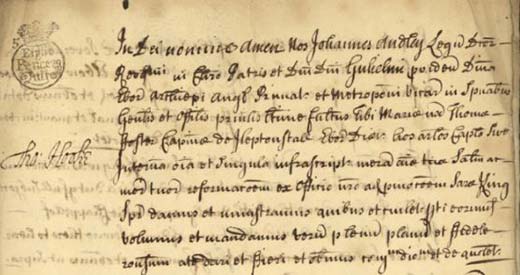Saturday, 11 February 2023
Hebden Bridge Local History Society Report
Scandal! Local cases before the bawdy courts 1516 – 1848
Speaker: Anne Mealia
It's not often that a talk to Hebden Bridge Local History Society starts (tongue in cheek) with a warning about scenes of a sexual nature, but Anne Mealia, genealogist and researcher, was about to open up some of the cases brought before the York Ecclesiastical Courts.

These records, kept at the Borthwick Institute at the University of York, have been digitised and can be searched online. (look for York Cause Papers) The so-called 'bawdy' courts dealt with offences against canon law, separate from the civil law system. This included offences against the Church and spiritual and moral behaviour.
Complaints to the court could have dire consequences, the most extreme being excommunication, which cut off the offender from many roles and rights. The disapprobation of the community was probably the strongest deterrent. Offenders could be humiliated by being made to stand in church for three Sundays, barefooted and dressed in a white shift, confessing to their misdeeds.
Drinking often featured in the complaints about unsuitable behaviour: George Bannister was a parish clerk (a cleric) accused of 'loose life and conversation' as he also ran an alehouse, and was suspected of using the communion cup and church flagons to serve his customers. Bannister won this case, but later he was accused again, with the added charge of having fathered 'bastard children'. The motivations of the accuser were a little suspect as the two men were involved in a property dispute.
A large number of the cases involved pews. Getting and defending a prominent pew in Heptonstall Chapel was clearly an important show of your place in the community. Families built or extended their pews, with incursions into what was claimed as someone else's space. Pew disputes could also lead to violence, as in the case of one woman aiming punches at another who was kneeling piously to pray.
Accusations of sexual misconduct were most damaging and could be the hardest to contest. Unless there was a child born, witnesses statements were often just gossip. Sometimes a very sad story emerges, such as the story of Ann Beane who left her marriage to live a life of 'loose and scandalous behaviour' at an alehouse. Her defence was that she was thrown out by her husband, but witnesses testified to having seen her in bed with men or heard gossip about her. Divorce wasn't a possibility, but 'separation from bed and board' was imposed, ruling out any re-marriage.
The cause papers provide a window into the daily lives of people who lived in this valley more than 300 years ago and whose concerns are often unrecorded. Anne showed us that this is a very rich resource.
At the next meeting of Hebden Bridge Local History Society at Hebden Royd Methodist Church, on Wednesday 22nd February, Peter Robinson will talk about the History of Calderdale Industrial Museum.
Details of the History Society talks programme, publications and of archive opening times are available on the History website and you can also follow History Society Facebook page.
With thanks to Sheila Graham for this report
See also: the HebWeb History section

